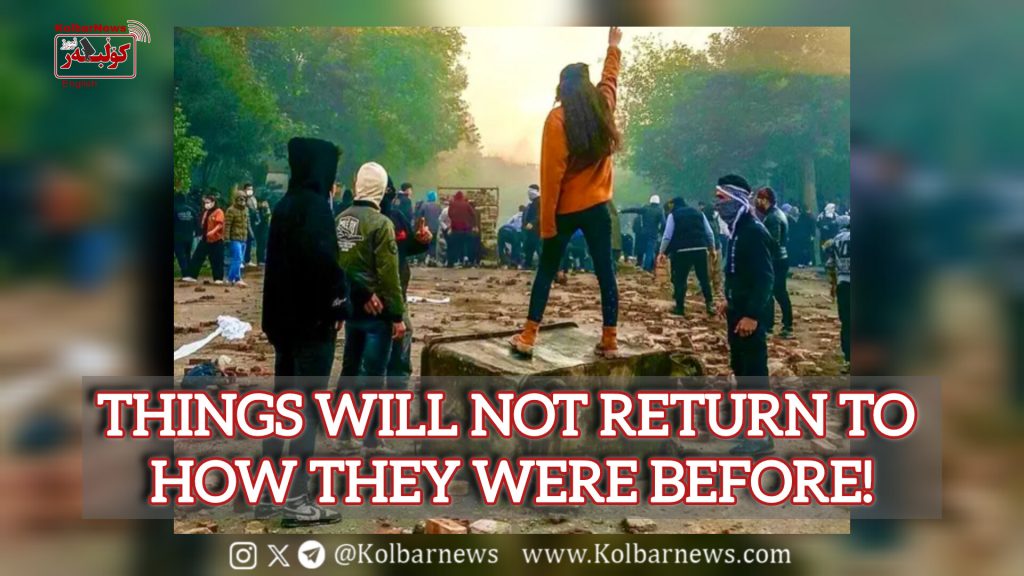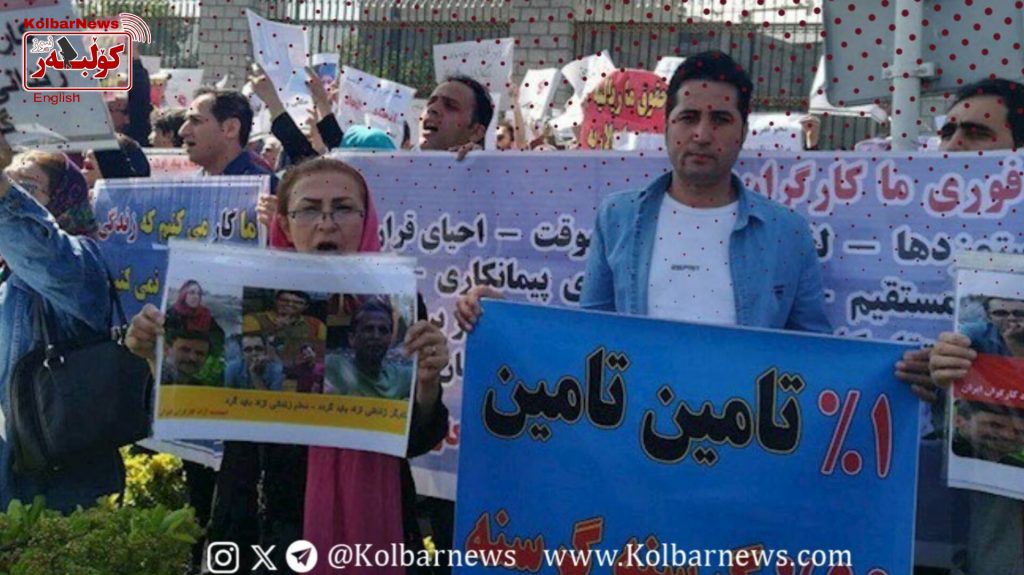
On Monday, September 9, Etemad newspaper conducted an interview with Maryam Abbasi, her daughter Nafas Haji-Sharif, a friend, and a witness, containing notable points. This interview followed a conversation published by Ham-Mihan on September 1 with the same guests. Nafas, a 14-year-old middle school student, had gone to Sana Shopping Center in northern Tehran on July 1 with her mother and a classmate. When she and her friend went to a store to pick up an order, a woman on the sidewalk warned them to be careful because the “Guidance Patrol” officers were nearby. The 14-year-old girls didn’t have time to react before a white van arrived, and four officers stepped out. Nafas, who was dressed freely, told the reporter:
“The officers were violent with us. I had heard about Mahsa Amini’s story from two years ago, and I didn’t want to get into that van. I resisted. I’m 14 years old, and they pulled me in by force. Four of them dragged me into the van. They pulled my hair, shouted at me, and cursed at me. Naturally, a person gets scared and doesn’t know what the right decision is. In that situation, I resisted.”
Nafas continues: “A woman came and hit me, put her knee on my throat, and kept hitting me on the head. The marks from the injuries were visible on my face and head for several days. My lip was wounded from the inside. My head got stuck between the seats, and they were kicking my side.”
The defiant teenager Nafas was taken to the police station in Gisha. Using her friend’s phone, she informed her mother. Maryam says: “When I arrived, I saw my daughter’s face was injured and bloody. Her neck was bruised, and there were scratch marks all over her body. Her clothes were torn, and she had tied her shirt to keep it from falling off.” She also mentioned that the officers transferred Nafas from one van to another vehicle to avoid having the footage from the van used as evidence against them.
Maryam explains that, on one hand, she saw her daughter badly beaten, and on the other hand, the officers were hurling vile insults at her, which left her in a state of shock.
As expected, the author of the Etemad newspaper report suggests that a few officers behaved inappropriately, while portraying the police as generally serving the public. However, the majority of Iranian citizens view the entire regime, both its reformists and hardliners, as oppressive, superstitious, exploitative, and anti-women. Besides the regime’s past executions in the 1980s and its treatment of activists in various fields, people also resist its laws and traditions in general.
Secular, radical, and progressive citizens, now in the second year of the revolutionary uprising led by Zhina (Mahsa Amini), have highlighted their achievements, the bravery of those imprisoned, the disabled, and honored the memory of those who lost their lives. They’ve shown through workers’ strikes, protests by retirees, teachers, and youth, as well as through writings and statements, that they are determined to continue the fight. One of the most striking signs was the massive participation in the successful strike in Kurdistan on Sunday, September 15, supported by progressive women and men across the country.
A critical achievement of the revolutionary movement “Woman, Life, Freedom” has been striking a blow against institutionalized patriarchy, rooted in religion and traditions. It has raised the status of women in society and the family by pushing back against the regime, the “Noor Plan” (a government initiative to enforce hijab), and its repressive forces like the Guidance Patrol, hijab enforcers, and other regime-backed militias. Reports from all over Iran, including the religiously conservative city of Qom, show that brave women not only defy the rules in their homes but also in public spaces, such as streets, shops, and other gatherings, where they appear dressed as they choose and are increasingly admired by progressive men.
Multiple reports confirm this assessment. A final quote from a realistic report written by Farn Taghizadeh and Farzad Saifi-Karan, published on September 16, the anniversary of the Zhina uprising, supports this:
Shadi from Karaj says, despite the increasing pressure, “because I’ve tasted a sense of relative freedom in this very country, I will continue my struggle.” Elham from Tehran mentions the smiles exchanged between women without hijab on the streets, saying, “the way I dress in public is my right.” Rojin from Sanandaj notes, “Now, wherever you turn on the streets, you see women and girls without compulsory hijab.” And Mahu from Baluchistan expresses happiness that “the women of her land dress comfortably and confidently as much as they can and refuse to submit to force.”
These women proudly believe, “Things will not return to how they were before.”

